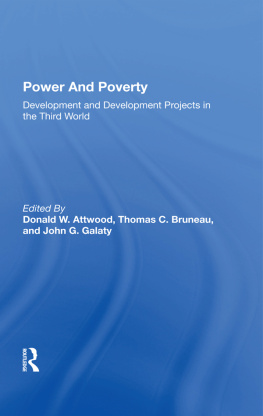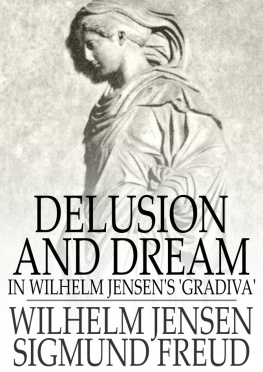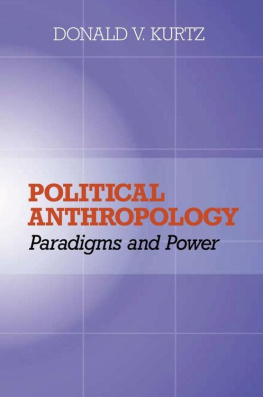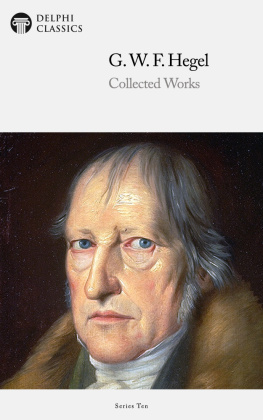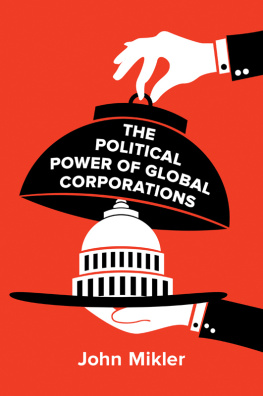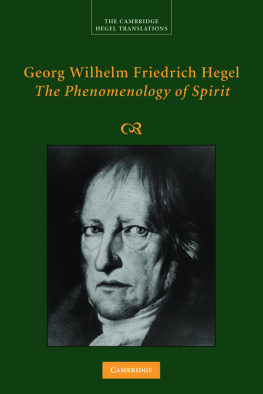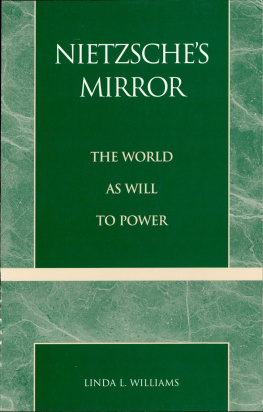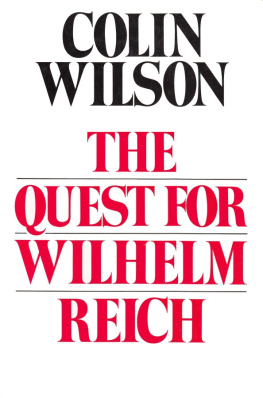Global Communications and Politicai Power
GLOBAL
COMMUNICATIONS
AND POLITICAL
POWER
Donald Wilhelm
First published 1990 by Transanction Publishers
Published 2017 by Routledge
2 Park Square, Milton Park, Abingdon, Oxon OX14 4RN
711 Third Avenue, New York, NY 10017, USA
Routledge is an imprint of the Taylor & Francis Group, an informa business
Copyright 1990 by Donald Wilhelm
All rights reserved. No part of this book may be reprinted or reproduced or utilised in any form or by any electronic, mechanical, or other means, now known or hereafter invented, including photocopying and recording, or in any information storage or retrieval system, without permission in writing from the publishers.
Notice:
Product or corporate names may be trademarks or registered trademarks, and are used only for identification and explanation without intent to infringe.
Library of Congress Catalog Card Number: 9034812
Library of Congress Cataloging-in-Publication Data
Wilhelm, Donald, 1915-
Global communications and political power / Donald Wilhelm.
p. cm/
ISBN 0-88738-354-8
1. Communication, International. 2. Communication policy--Soviet Union. 3. Soviet Union--Politics and government--1985-4. Perestroika. I. Title
P96.I52S658 1990
302.2--dc20 90-34812
ISBN 13: 978-0-88738-354-0 (hbk)
This book is dedicated to all those who so courageously spoke out ahead of their time.
Contents
The year 1977 saw the first publication, in Britain, of my book entitled Creative Alternatives to Communism. In the book I argued that, although Marxist regimes then ruled a large share of the world, communism carried the seeds of its own destruction. It was already, I suggested, showing clear signs of its inherent instability and was giving advance signals of its inevitable decline in favour of more viable and humane systems. The work then set forth a range of non-communist options.
The book was subsequently published in the United States, in India, in Indonesia, and in a special edition for the Spanish-speaking world. But most important, brave people personally, and at no little risk to themselves (for the police states were still in the ascendency then), carried hundreds of copies of the work into the countries of Central and Eastern Europe. There, in its low-key and behind-the-scenes way, the book did its modest bit to provoke what was to become a tidal wave in support of freedom.
Recently, in what had been communist Central and Eastern Europe, we have seen an accelerating pace of change. Glasnost and perestroika have sufficiently taken root in the Soviet Union so that at least in the longer term and in spite of inevitable temporary setbacks they may prove to be irreversible. The hated Berlin Wall has at last been breached, and the East German regime has been largely transformed. Poland has moved in the direction of becoming a multi-party democracy, and Czechoslovakia has shown similar tendencies. In Hungary the ruling communist party has in effect voted itself out of existence. Romanias totalitarian regime, which had held its people in an iron grip, has been toppled by them. In 1990 the earlier-omnipotent Soviet Communist Party, seeing the handwriting on the wall, surrendered its monopoly of power. And so the signs multiply.
In all of this the communications revolution has played, and will continue to play, a crucial role. Through satellite and other communications we can with our own eyes and in our own homes witness the forward march of freedom; and in interactive fashion those who strive for freedom receive fresh encouragement from the events thus portrayed. Yet the road to the full achievement of parliamentary democracy, human rights, economic and social well-being, and international peace will continue to be a tortuous one, and even the most sophisticated electronic media need further intellectual complementation. Experience has shown that works such as the present one are required to help point the way.
In the writing of this book I am indebted to literally hundreds of people both those cited in the notes and index and many others as well. Although it is impossible properly to acknowledge all their courtesy and their kindness, they will know of my indebtedness to them. But exceptionally I must thank Dr. John Gunn for his unstinting encouragement of the project; Professor Irving Louis Horowitz and his staff at Transaction Publishers, Rutgers University; and Mike Graham Cameron, my publishing consultant. I am eternally indebted to my wife Rene for inspiration, valuable thoughts, and perceptive assistance. Needless to say I alone am responsible for any errors of fact or interpretation.
DONALD WILHELM
From the time he became Tsar in 1696, Peter the Great (16721725) made a determined effort to modernise Russia, and he brought in much Western expertise for this purpose. Much later, in the years leading up to World War I, Russia was industrialising very rapidly, again with the help of Western expertise. During most of the 1980s, Mikhail Gorbachev struggled still with the aid of much expertise from the West to modernise his ailing country with its laggard economy and underdeveloped political and social system. A brilliant man by any standard, he was in a certain allegorical sense a new Peter the Great.
More than seventy years after her creation as the worlds first major Marxist state, the vast Soviet Union still cannot feed herself. Although ranked as a military superpower, she has a third-world economy. Increasingly the signs suggest that her empire the only remaining one on earth is coming apart at the seams.
That empire had grown rapidly both during and after World War II. During the war the Soviet Union had gobbled up much of independent Poland and all of the independent Baltic states of Estonia, Latvia, and Lithuania. At the ill-starred Yalta conference of 1945, the Soviet Union in effect received a free hand to dominate most of the remainder of Eastern Europe. It was of course Winston Churchill who, in the following year, sounded the first clear alarm when, in his definitive speech at Fulton, Missouri, he proclaimed that the Iron Curtain had descended across Europe.
But from the outset it became clear that the spirit of liberty had not been, and could not be, extinguished. The stirrings of freedom led Soviet forces to invade Hungary in 1956, the cultural obscenity of the Berlin Wall was created in 1961, and the Czechoslovakian tragedy was enacted in 1968. With the emergence in Poland in 1980 of Solidarity as communist Europes first major independent trade union, a movement was established which refused to go away.
As conditions became increasingly unstable within the Soviet Union and its empire, the times in a real sense called forth the man in the shape of Gorbachev. Having been born in 1931 in the southern Soviet Union village of Privolnoe, and having by the age of 15 started work as a harvester operator, Gorbachev had by 1967 received degrees both in law and in agriculture. His rise through the Communist hierarchy was swift, and by 1970 he had become a member of the USSRs Supreme Soviet, in 1983 he became General Secretary of the Communist Party of the Soviet Union, and in 1988 he was chosen as his countrys President as well.
Meanwhile, in 1987, he had published his eloquent book entitled




